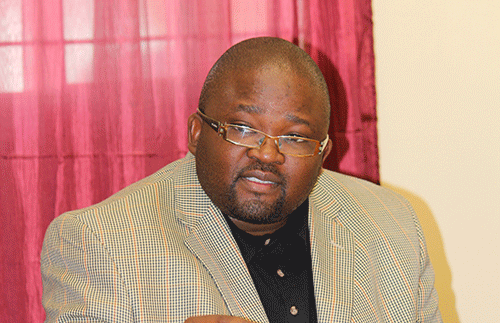Zebaldt Ngaruka
Swanu president Evilastus Kaaronda believes Namibia’s economy remains in white hands, and this perpetuates the historical networks that undermine the probability of economic freedom and black Namibians.
He said this during his contributions to 2025/26 in the National Assembly recently, adding that blacks’ economic freedom will never exist without tackling the white supremacist corporate superstructure.
“This, in short, means the production and power remain concentrated in white capitalist hands on the one hand and foreigners on the other,” he said.
The Swanu MP said the country urgently needs a strong and vibrant black middle class around which a different social accumulation, where poverty eradication strategy, can be built. He proposed that the national budget must be weaponised to deliberately build a black middle class and push the economic freedom of black Namibians to the fore. “All these must be driven by the state as an active participant in the economy, taming the invisible hand of the market and securing affirmative distribution of resources,” said Kaaronda.
The unionist-cum-politician added that black Namibians live like second-class citizens in their country, 35 years after independence and from one generation to the next.
“All they bequeathed to one another is squalor and heightened indigene,” he noted.
Kaaronda said it is evident that the class formations found in the informal settlements on the peripheries of urban towns and those found in rural Namibia are identical but the reproduction of these class formations takes place in rural areas. He suggested that the best place to start if the government is serious about poverty eradication, industrial development, and employment creation must be the rural areas.
“The fact that rural Namibia is characteristically underdeveloped, primitive in its socialisation and accumulation and exclusively black, is no accident of history but a calculated outcome of the separate development philosophy of apartheid capitalism,” said the firebrand Swanu leader.
He added that the country’s urban peripheries, known as informal settlements, have experienced rapid growth since independence.
“This means more people are living in shacks on the peripheries of towns than at independence. Our people seek to escape rural poverty by migrating to towns in the hope of finding jobs but as soon as they arrive, they realise that there are no jobs and life is even far worse than in rural areas,” Kaaronda explained.
He added that the rural poverty, urban poverty, and informal settlements faces are black.
“The face of youth unemployment is black, and so is the face of every Namibian affected by the recent floods and the consequent displacements and the face of the landlessness is black,” the Swanu leader said.
The parliamentarian added that informal settlements such as Twaloloka in Walvis Bay, Tsaraxaibes in Otjiwarongo, DRC in Swakopmund, Agste Laan, Havana and many more in the capital are inhabited by black Namibians in a country led by their fellow black brothers and sisters.
“During election campaigns, they promise to improve their brothers’ living conditions and create employment but they fall prey to the trappings of public office wealth and comfort,” the MP said.
-zngaruka@yahoo.com



